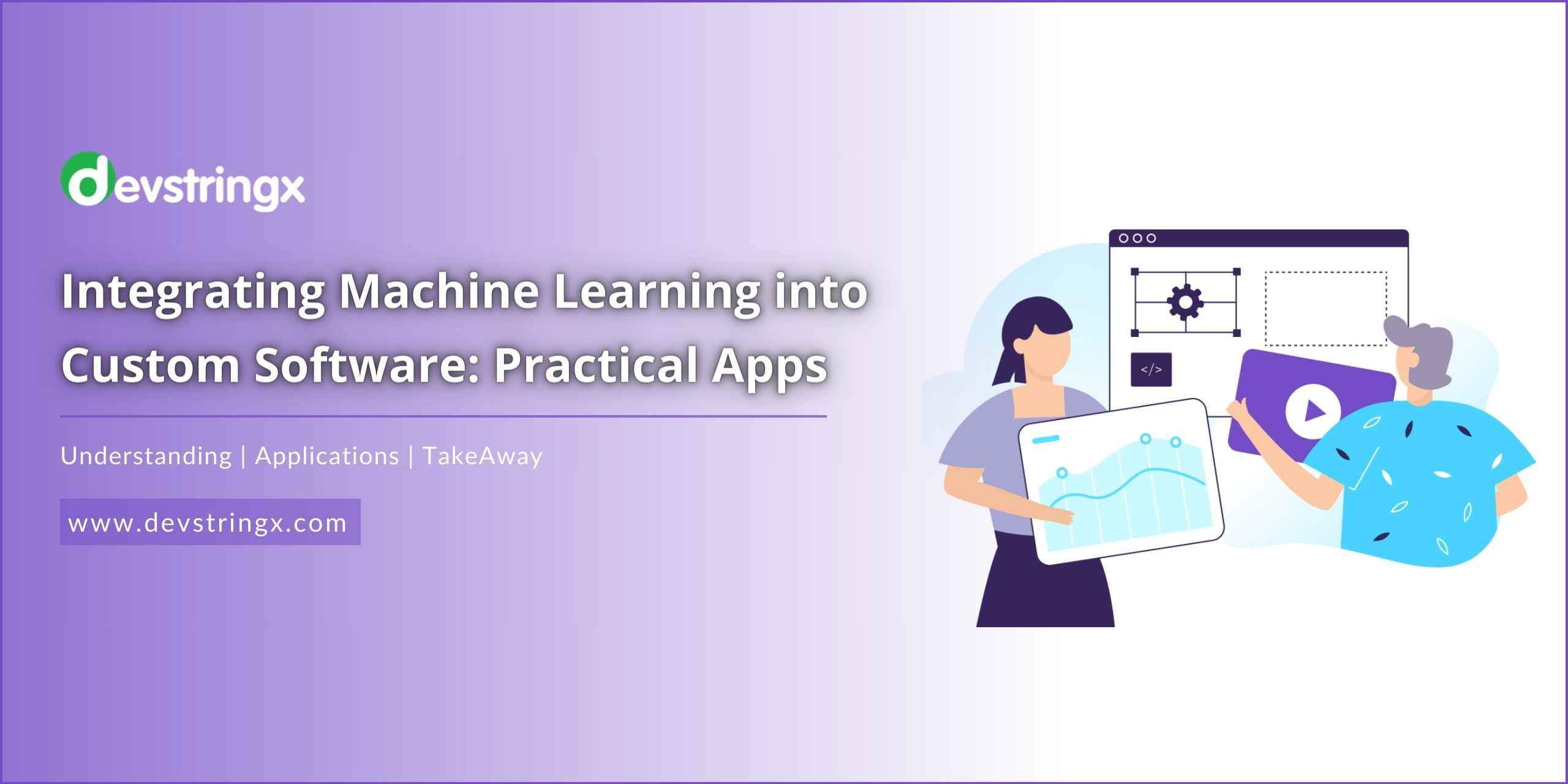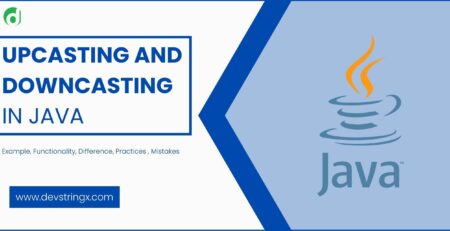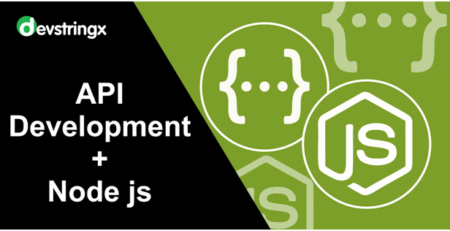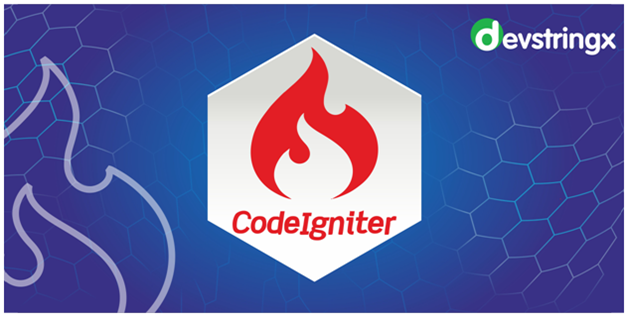Integrating Machine Learning into Custom Software: Practical Applications – DS
Practice of Machine Learning Integration into Software Development
With the advent of technological advancements, businesses are rapidly recognizing the importance of custom software development to gain a competitive edge. But what happens when we combine the power of machine learning with custom software development? The result is a powerful combination that has the potential to revolutionize operations and decision-making processes.
Machine learning integration in custom software is not a buzzword; it offers practical solutions with numerous real-world applications. With tons of applications and more on anvil, this combination has the potential to improve efficiency, cut costs, and significantly enhance customer experience.
Understanding Machine Learning
Before we analyse machine learning applications, let’s briefly explore the concept of machine learning. Basically, machine learning is a branch of artificial intelligence (AI) that focuses on developing algorithms and statistical models. These algorithms enable computers to learn and make predictions or decisions without relying on programming.
To illustrate this concept further, let’s consider an example. Imagine you wanted to create a system for identifying whether an email is spam or not. Traditionally, you would write rules such as “if the word ‘free’ appears more than four times in an email, classify it as spam.” In machine learning, you provide the system with a set of emails indicating which ones are spam and which are not. The machine learning model then learns from this data to identify patterns, enabling it to classify emails as spam or not, even if they don’t follow rules, you may have initially considered.
How to Integrate Machine Learning into Custom Software?
The integration of machine learning into custom software enhances its capabilities by allowing it to learn from data and make intelligent decisions. This powerful fusion of technology can be applied across diverse sectors, revolutionizing processes and enabling data-driven solutions. When incorporating machine learning into custom software, the following are some key components to consider:
1) Data
Machine learning relies on data for training your model. It can include customer information, sensor readings, historical records, and more from sources.
2) Algorithm
The essence of machine learning lies in the algorithm that processes and learns from the data. There are algorithms for different types of problems, so the selection of a fitting algorithm depends on your use case.
3) Training
Once you have gathered your data and selected an algorithm, the next step would be to train your model. It involves providing the algorithm with the data and allowing it to learn underlying patterns and relationships.
4) Integration
Finally, you integrate the trained model into your custom software by writing code that enables your software to send data to the model, receive predictions, and take actions based on those predictions.
Good to Read:- How to Use Chatgpt for Software Development?
Applications of Integrating Machine Learning into Custom Software
Now, let us take a closer look at how integrating machine learning into custom software is making a tangible impact across diverse industries. We will explore specific real-world applications where this integration drives innovation, efficiency, and data-driven decision-making.
1) Healthcae
In healthcare, early diagnosis can be a matter of life and death. Machine learning can enhance custom software solutions by predicting diseases and conditions based on data and medical history. For example, a machine learning model can analyse a patient’s symptoms, genetic information, and past medical records to predict the likelihood of developing a disease, such as diabetes or cancer. This early warning system can assist doctors in making decisions and improving patient outcomes.
2) E-commerce
Have you ever wondered how e-commerce platforms like Amazon suggest products that might interest you? Well, Machine learning is the secret behind these personalized recommendations. These systems analyze your browsing and purchasing behavior and customize product suggestions. This personalization facilitated by machine learning enhances user experience and boosts sales for e-commerce businesses.
3) Finance
Fraud detection is a constant challenge for institutions. Machine learning has the potential to be seamlessly incorporated into customized software applications, enabling the detection of patterns in transactions. By examining volumes of transaction data, machine learning models can swiftly identify potentially fraudulent activities in real time. This proactive approach significantly helps prevent losses and safeguards the interests of both customers and institutions.
4) Manufacturing
In the manufacturing sector, minimizing machine downtime is crucial to avoid losses. Customized software integrated with machine learning capabilities can accurately predict when machines might fail based on sensor data and historical maintenance records. It enables maintenance teams to conduct maintenance before any breakdown occurs, resulting in reduced downtime and improved operational efficiency.
5) Marketing
Marketing efforts can significantly benefit from utilizing custom software powered by machine learning. Through the examination of customer data, machine learning models can effectively segment customers into groups based on their preferences, behaviour, and demographics. Such segmentation empowers marketers to tailor their campaigns for impact, leading to conversion rates and a better return on investment (ROI).
6) Agriculture
Through customized software integrating machine learning capabilities, agricultural practitioners can analyse data collected from drones, satellites, and sensors to monitor crop health closely. Early identification of issues such as disease outbreaks or nutrient deficiencies allows farmers to take actions aimed at safeguarding their crops and enhancing productivity.
7) Energy
Machine learning is employed to analyse energy consumption patterns in buildings and industrial facilities to achieve energy optimization. By integrating machine learning into custom software, valuable recommendations can be provided to optimize energy usage, resulting in cost savings and a positive impact on the environment.
Takeaway
In conclusion, integrating machine learning into custom software is not a fetched idea; it is a practical solution that offers tangible benefits across various industries. Whether it involves predicting diseases in healthcare, optimizing marketing strategies, or preventing deception in finance, machine learning is revolutionizing how businesses operate and make decisions.
When contemplating machine learning applications in your custom software projects, it is essential to remember that success largely depends on having access to high-quality data and selecting appropriate algorithms. Additionally, acknowledge that periodic retraining of machine learning models may be necessary to maintain accuracy as data and circumstances change.
In today’s evolving landscape, leveraging machine learning integration can provide your business with a significant advantage. It is high time to utilize the power of machine learning and its potential to drive innovation and efficiency within your custom software solutions.














